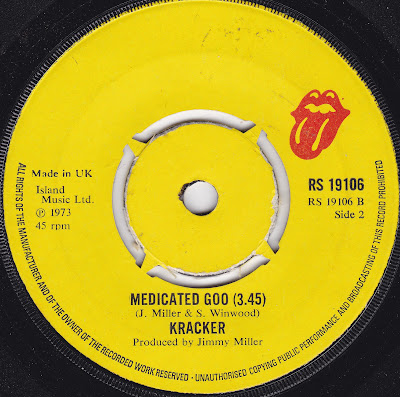Sophisticated but well-written mid-seventies pop from ex-White Plains boys
Label: Dawn
Year of Release: 1975
Dawn was a perplexing label. Started by its parent label Pye as a home to more progressive and hippy-friendly artists (akin to EMI's Harvest or Decca's Deram) it started off on-spec with huge hits from the hairy festival jugband act Mungo Jerry and lesser-selling pieces of wonderfulness from more subdued acts such as Heron. Eventually, though, these beardy releases gave way to all manner of commercial rock and pop, including releases from The Glitter Band and Brotherhood of Man.
This 45 definitely exists at the end of Dawn's catalogue marked "sophisticated pop". Only the stray sound of a sitar low in the mix shows any concessions to the label's past - the rest of the track is taken up with hooky choruses and zingy but breezy orchestral arrangements, having more in common with Edison's Lighthouse than anything likely to have got John Peel excited.
Still, it's deftly done, and certainly could have been a hit - the song is determined to make maximum impact, and pushes itself forward with hook after hook on top of a pristine arrangement. That possibly shouldn't be too surprising, given that the group were formed from the remains of White Plains, and their sound practically invented the slick, careful but potent 70s pop formula.















